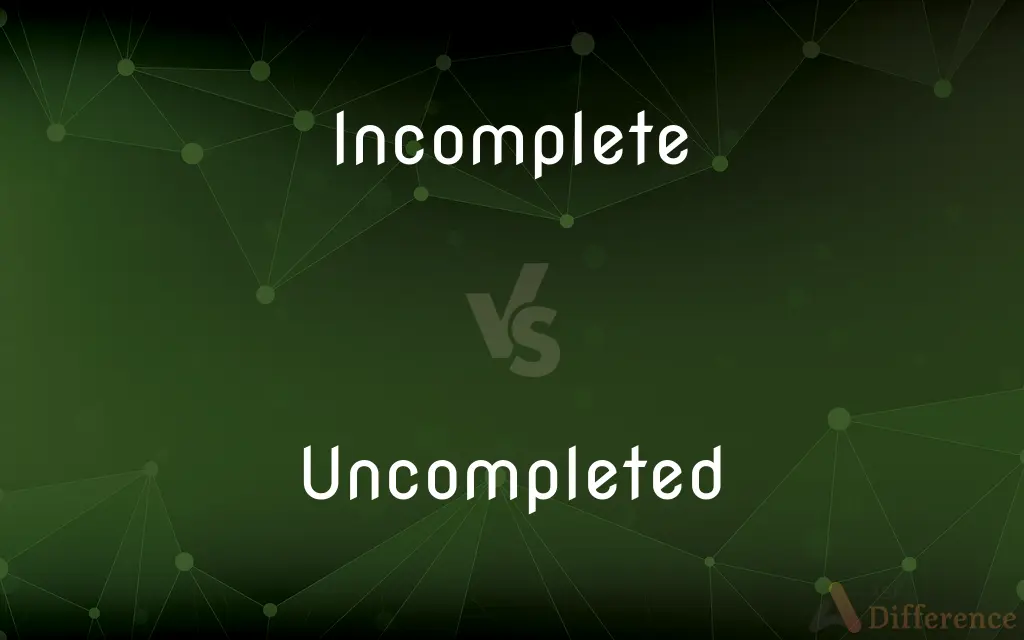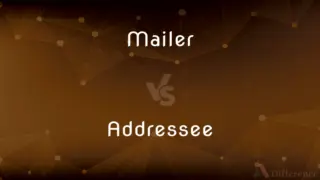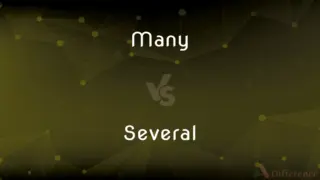Incomplete vs. Uncompleted — What's the Difference?
Edited by Tayyaba Rehman — By Urooj Arif — Updated on March 8, 2024
Incomplete refers to something that lacks some parts or elements, implying it hasn't met expected standards. Uncompleted describes tasks or projects still in progress, highlighting a temporal aspect.

Difference Between Incomplete and Uncompleted
Table of Contents
ADVERTISEMENT
Key Differences
Incomplete often denotes a status where something lacks one or more necessary parts or elements, making it unable to fully serve its purpose or meet its intended standards. Uncompleted, on the other hand, emphasizes that an activity, task, or project has been started but not yet finished. It suggests a progression towards completion that has been halted or is ongoing.
Incomplete term can apply to a range of scenarios, from incomplete assignments in education to incomplete features in a product, indicating that what is missing is essential for its completeness. The term 'uncompleted' is particularly used in contexts where the process of completion is temporarily paused or expected to be finished in the future.
While both terms relate to the state of being not finished, the emphasis differs. Incomplete focuses on the absence of parts that are crucial for completeness, regardless of whether there has been an attempt to finish. Uncompleted implies that there has been an attempt to complete the task or project, but it has not yet reached its conclusion.
The use of incomplete may also suggest a qualitative assessment, implying that what is missing significantly affects the utility or value of the item or work in question. For instance, an incomplete understanding of a subject means that essential knowledge is missing, potentially impacting one's ability to apply or discuss the subject matter effectively. Uncompleted work might still have all the necessary components in play but requires more time, effort, or resources to reach completion. It carries a sense of temporality, indicating that while the end goal has not been achieved, it may be completed with additional work. This distinction is crucial in project management, construction, and various forms of creative work.
Comparison Chart
Definition
Lacking necessary parts or elements
Not finished but intended to be completed
ADVERTISEMENT
Emphasis
On the absence of essential components
On the process being ongoing or paused
Contexts
Academic work, product features
Projects, construction, tasks
Implication
May affect utility or completeness
Suggests temporality and potential for completion
Usage
Qualitative assessment
Describing progress status
Compare with Definitions
Incomplete
Products released with missing features promised at launch.
The software was released in an incomplete state, lacking several advertised functionalities.
Uncompleted
Started but not finished; still in the process of being completed.
The construction of the new office building is uncompleted, awaiting additional funding.
Incomplete
Work submitted without fulfilling all requirements.
His assignment was marked as incomplete due to the absence of a bibliography.
Uncompleted
Art, books, or music that the creator has begun but not finished.
The artist left behind several uncompleted paintings at the time of his passing.
Incomplete
Not fully developed or acquired.
Her understanding of the subject was incomplete, affecting her exam performance.
Uncompleted
Aims or objectives that have been set but not yet achieved.
Our team has a few uncompleted goals for the quarter that we're carrying over to the next.
Incomplete
Missing necessary information or sections.
The application was considered incomplete because it lacked the required supporting documents.
Uncompleted
Tasks that have been initiated but not yet finalized.
We have several uncompleted tasks on the project plan that need attention.
Incomplete
Not having all parts or elements; lacking some necessary detail.
The report was incomplete because it was missing several key analyses.
Uncompleted
Physical work on buildings or spaces that is not yet done.
The renovation of the kitchen is uncompleted, with work stopping after the cabinets were installed.
Incomplete
Not complete.
Uncompleted
As yet unfinished.
Incomplete
(Football) Not caught in bounds or intercepted
An incomplete forward pass.
Uncompleted
Not completed.
Incomplete
A grade indicating that the requirements for an academic course or assignment have not been met.
Uncompleted
Not yet finished;
His thesis is still incomplete
An uncompleted play
Incomplete
Not complete; not finished
Uncompleted
Not caught or not caught within bounds;
An uncompleted pass
Incomplete
(botany) Of a flower, wanting any of the usual floral organs.
Incomplete
Something incomplete.
Incomplete
(Usenet) A multipart file posted to Usenet that is incomplete and thus unusable.
Incomplete
(Internet) A multiplayer game that is abandoned because one player disconnects.
Incomplete
A designation of being incomplete.
He got four incompletes out of five courses last semester.
Incomplete
Not complete; not filled up; not finished; not having all its parts, or not having them all adjusted; imperfect; defective.
A most imperfect and incomplete divine.
Incomplete
Wanting any of the usual floral organs; - said of a flower.
Incomplete
Not complete or total; not completed;
An incomplete account of his life
Political consequences of incomplete military success
An incomplete forward pass
Incomplete
Lacking one or more of the four whorls of the complete flower--sepals or petals or stamens or pistils;
An incomplete flower
Complete flowers
Incomplete
Not yet finished;
His thesis is still incomplete
An uncompleted play
Common Curiosities
How is uncompleted different from incomplete?
Uncompleted refers to tasks or projects that are in progress and not yet finished, emphasizing the temporal aspect, whereas incomplete focuses on the absence of essential components.
Can a project be both incomplete and uncompleted?
Yes, a project can be both if it's in progress (uncompleted) and missing essential parts (incomplete).
Does uncompleted imply a deadline?
Uncompleted often implies that there's an intention to finish, potentially by a specific deadline, though it doesn't specify the timing.
Is incomplete a permanent state?
Not necessarily; something incomplete can be completed if the missing parts or elements are added.
How do educators use the term incomplete?
Educators use incomplete to indicate that a student's work is missing required components or that they haven't fulfilled course requirements.
What does uncompleted work indicate in a professional setting?
It indicates tasks or projects that have been started but not yet finished, often due to various factors like resource constraints.
What does incomplete mean?
Incomplete describes something missing necessary parts or elements, affecting its utility or completeness.
Is uncompleted a negative term?
Not inherently; it describes a state of progress and can indicate potential for future completion.
Why might a product be released in an incomplete state?
Due to deadlines, budget constraints, or prioritizing certain features over others.
How can one address an incomplete status?
By identifying and adding the missing parts or elements necessary for completion.
Can personal goals be considered uncompleted?
Yes, personal goals can be uncompleted if they're not yet achieved but are intended to be.
How does the distinction between incomplete and uncompleted affect project management?
It helps in categorizing tasks and projects based on their completion status and determining the necessary actions to progress towards completion.
Can incomplete apply to skills or knowledge?
Yes, it can describe skills or knowledge that are not fully developed or acquired.
What strategies can help move an uncompleted project to completion?
Effective planning, resource allocation, and addressing any barriers to progress.
Does uncompleted suggest failure?
No, it suggests that the process of completion is ongoing or temporarily paused.
Share Your Discovery

Previous Comparison
Mailer vs. Addressee
Next Comparison
Many vs. SeveralAuthor Spotlight
Written by
Urooj ArifUrooj is a skilled content writer at Ask Difference, known for her exceptional ability to simplify complex topics into engaging and informative content. With a passion for research and a flair for clear, concise writing, she consistently delivers articles that resonate with our diverse audience.
Edited by
Tayyaba RehmanTayyaba Rehman is a distinguished writer, currently serving as a primary contributor to askdifference.com. As a researcher in semantics and etymology, Tayyaba's passion for the complexity of languages and their distinctions has found a perfect home on the platform. Tayyaba delves into the intricacies of language, distinguishing between commonly confused words and phrases, thereby providing clarity for readers worldwide.













































